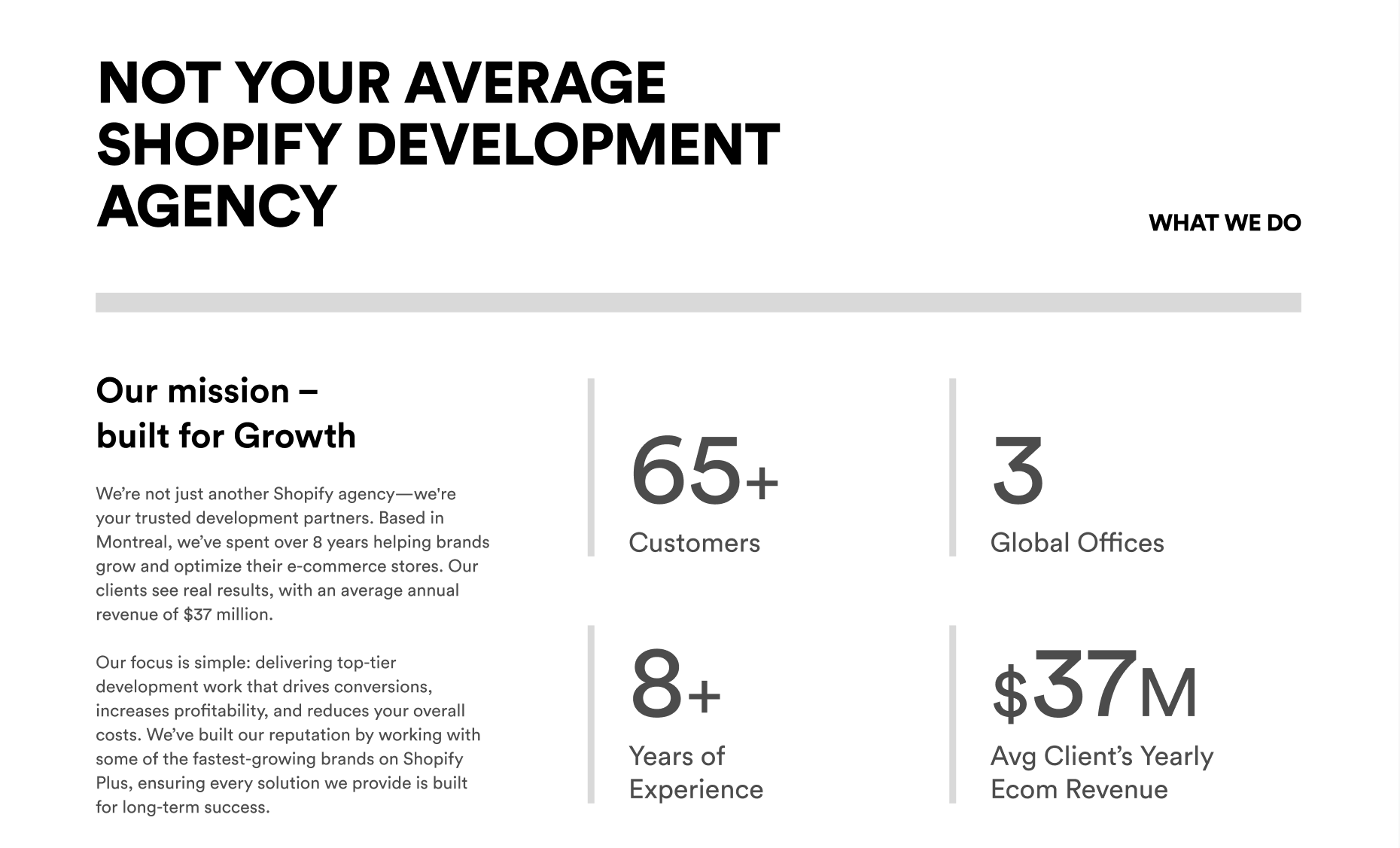Getting caught up in the day-to-day events involved in running a Shopify store may seem productive at first, but over time, it may lead to a businessman's worst nightmare; shortsightedness.
A Shopify Store Cleanup is somewhat similar to spring cleaning. It's the one time you set aside to tidy things up and to do it thoroughly. As a matter of fact, it is a routine behavior observed in successful business owners.
If you do not willingly select a time to clean up your code, the chances are that your webpage will select one itself, and you may not like the date it chooses. Before you decide on a Shopify speed optimization agency, be sure to ensure they’re the best of the best so your store stays in good hands,
Why Should You Clean Up Your Code?
I've heard that the flap of a butterfly's wings from a mile away can trigger a hurricane, but did you know that something as simple as shifting web elements could lead to code anomalies?
Wondering why you seem to be taking all the right steps but getting half the impact? It may simply be because there are accumulated errors in your code.
Here are a few of the harmful effects that could arise from forgetting to clean up your code;
- Speed Decline: having excess and redundant codes in your program makes it load slower. This happens because your web page has to run those entire codes one after another to achieve a full load.
This has a direct effect on your conversions and bounce rates. If your page took too long to load, I wouldn't want to click on another button that might get me waiting for another 5 seconds. And that is how your CTAs get ignored.
According to Google, a page loading time of 3 seconds corresponds with a bounce rate of 30%, while a page loading time for 6 seconds increases bounce rates by 100%.
At this point, refusing to clean up your code is the same as chasing your customers away with a broom.
- Security threats: a redundant code is a bait for hackers. If you are not vigilantly protecting your code by updating it and cleaning it up regularly, you may witness increased phishing attacks. According to statistics, every 39 seconds, a website is attacked by a hacker.
Shopify seems to be relatively safe from hackers, but it is not advisable to let your guards down because these hacks still happen.
- Potential Outages: if you don't take out time to treat your code, it may fall sick. Sadly, the worst thing that can happen when your web page falls sick isn't just loss of sales. It is way more.
In a single downtime, you could lose a huge amount of money, and worse still, your customer's trust. Having recurrent downtimes ruins your company's image, leading to even fewer sales.
- Low rankings on Google: having a slow, bulky code reduces the chances of your website being among the first few suggestions on Google. With a lot of luck, you may even be on the first page.
Optimizing SEO is an excellent step to increase page ranking and, subsequently, site traffic, but according to the new Google Core Web Vitals update, having a speedy site will fetch you more traffic.
When Is The Best Time To Clean Up Your Store?
There is never a wrong time to clean up your code. Nonetheless, there are specific times when a code cleanup is more effective. It is all about the impact.
- Before starting a new project, of course, you want to start off on a good foot. Cleaning up just before you start a new project makes all of your effort 10 times as impactful.
- When you notice bugs, while it isn't advisable to rewrite your code every time something goes wrong, you should schedule a cleanup when you notice a bug. Another way to go about it is to carry out an urgent makeshift cleanup, marking a date on your calendar to perform an in-depth cleanup.
- Before uploading a new feature, clearing bugs before you input a new feature will help you properly assess the impact of that feature on your overall site performance and user experience.
However, even if all of these situations are absent, code cleanups should be done regularly and added to the maintenance procedure for your web page.
Some Examples of Brands that Learned Their Lesson the Hard Way
Here is a preview of what your Shopify store could end up like if you refuse a regular code cleanup.
CostCo
Costco is an online store that sells everything from electronics to furniture. They were sailing smoothly, making an average of $178million every year until they hit an iceberg. In 2018, their site experienced an unprecedented crash during their Thanksgiving sales. They lost 11 million dollars in just 16 hours during that page outage. Worse still, their customers did not sit quiet; they made sure to tell everyone what a terrible experience they had with Costco.
Costco's significant losses and damage to its reputation might have been avoided if they had taken time to run a thorough optimization of their site before announcing a huge sale.
J.Crew
The J Crew also ran into an iceberg when their site folded during the black Friday rush. Customers were not able to cart the items they wanted to buy due to a site error.
Experts have attributed this site error to be caused by problems with the store's code or too many apps.
Although the outage lasted only a few hours, JCrew lost well over $700,000.
They managed to get their site back up, but it was too late.
Gymshark
Popular fitness apparel brand, Gymshark witnessed a plunge in black Friday sales when their site crashed. The crash that cost them $143,000 wasn't caused only by traffic. They had missed out on a poorly coded app during their cleanup. Or maybe they had forgotten to clean up at all amidst the buzz and campaigns. They paid for their mistake in thousands of dollars.
Lululemon
Lululemon, an online store that sells athletic wear for men and women, averaged 3.820 billion dollars in revenue in 2019. They witnessed uproar from their customers when their page suddenly went out during black Friday sales. They spent the next few days making apology after apology and trying to regain their customer's trust. Their stock prices suffered from their loss of sales, and it wasn't until recently that they could get back to the giants they once were.
Walmart
Even a store as established as Walmart is not safe from site crashes when they overlook their codes. For some reason, Walmart failed to update its code during their Black Friday sale in 2019.
As a major brand, this meant a huge loss, and thousands of customers couldn't shop. Because of this one flaw, Walmart lost $9 million in just 150 minutes.
Net-a-Porter
Hours after releasing its latest deals during a sale, online retailer Net-a-Porter broke the hearts of its customers. Midway into the sale, the store crashed, and customers were left stranded with no way of checking out their carts.
While the site displayed an apology, it did not stop herds of shoppers from flocking to Twitter and other social platforms to express their disappointment.
Argos
Argos, a toy and games company, was not left out. In 2015, its site went out on the first day of its sales, despite announcing and launching its new deals weeks early.
Ulta
A company that deals with everything beauty, including skincare, haircare, and makeup, ran into a similarly unfortunate event when their website refused to pick up during their biggest sales period of the year. The company that made an average of 4.855 billion in a year lost a huge sum in one go simply because they hadn't adequately prepared for the sales.
Ulta had failed to run its site through speed checks and a thorough optimization to ensure it could handle the inflow of customers during the sales. Its website crashing meant a huge fail for the business as it not only resulted in loss of sales but thorough damage to its reputation.
Tesco
Tesco was fast becoming a household name in 2014 before their website fell into the Black Friday sales nightmare. Their site crashed for 6 hours, losing a lot of money as well as trust. Even when the site returned, it was in complete disarray, with sold-out items still on display. It was total chaos.
TopShop
Upbeat clothing retailer, Topshop, suffered a similar fate in 2014 when its site folded under the black Friday pressure.
Not putting aside time to clean up your code is extremely dangerous because it may decide to take a day off on the most productive day of the year, as seen in the cases above.
The consequences are numerous; decrease in sales which could lead to crashing stocks, low search ranking, low conversions, and higher bounce rates. For a small eCommerce business, it may be hard to pick yourself up again after such a huge fall.
How Can We Help?
EcomExperts is an expert optimization agency that brings your web page up to acceptable standards and prevents code buildup by ridding your web page of redundant codes and codes leftover by uninstalled apps.
Come to us for a thorough code cleanup today!












